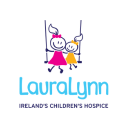What to Say (and Not Say) to a Grieving Parent
Breffni Mc Guinness, Bereavement Coordinator, LauraLynn, Ireland’s Children’s Hospice.
The death of a child is one of the most difficult deaths that anyone may have to face. We often don’t know what to say or do when someone we know has experienced this loss. And yet, it is very important to reach out and engage with the parent even though we might feel uncomfortable.
Sometimes we might wonder about what is the ‘right thing to say’? We don’t want to offend someone who is already suffering deep pain, and we don’t want to make matters worse. So, what can we do?
Reach out
One thing that is helpful to remember is that for the parent whose child has died the worst thing has already happened. Rather than focussing on the right words – it is more important to trust yourself and to reach out in compassion.
Be aware of your own discomfort
Sometimes when we are talking to people who are bereaved, we feel uncomfortable. It is good to be aware of this and at the same not let this get in the way of supporting the person. What people who are bereaved really want is to be met with your humanity and care. It does matter when we express our condolences – no matter how clunky or uncomfortable we might feel while doing so. It makes a big difference to the person who is bereaved. Believe it or not, when you are grieving it can be more painful when people avoid you because they don’t know what to say or because they feel uncomfortable.
Keep it simple
Don’t worry about finding the perfect words – trust yourself and your gut. Use the child’s name wherever possible. If you are struggling to find a way to start you can use something like:
“I am so sorry to hear about John” or
“I can’t imagine how difficult this is for you”
“I am so sorry about John – he was a lovely boy”
Don’t worry about awkward pauses or gaps
These may occur – remember the priority here is the welfare of the person who is bereaved. Don’t feel you have to fill the silence or the gaps. The person may be lost in their thoughts and emotions. Sometimes there aren’t words to describe what they are experiencing. I can guarantee you that they will still appreciate that you made the effort to reach out to them even if it is a bit awkward.
Let the bereaved parent be your guide
Take your cue from the person who is bereaved – let them be your guide to their grief. Reach out, offer condolences. If they do not wish to talk to you or if they don’t engage – don’t be offended – they are in unimaginable pain at this moment. They will still appreciate that you made the effort to connect with them even if they might not be in the space right now to receive that. On the other hand, if the person wants to talk – let them – and all you have to do is listen. Be aware that someone will generally only talk to someone else if they feel comfortable to do so. Take that as a compliment and allow the person who is bereaved to talk as much as they wish. Listen, listen, then listen a bit more.
Don’t minimise the loss
It is really important not to minimise a person’s loss – especially in relation to a child who has died. Phrases like “you can always have another child” or “at least you still have one child” are, not helpful. This is not a time to try to cheer someone up – no matter how well intentioned. It is a time to meet our fellow human being in the midst of their suffering and to walk alongside them for a little bit.
If in doubt
Finally, if you are really struggling and don’t know what to say or how to say it – say nothing. Silence is better than saying something that might be unhelpful or painful for the grieving parent to hear.
Final Note
The death of a child is one of the hardest losses that anyone may have to face. It can be hard to know what to say to a parent in this situation. And yet, our care and support are needed by families at this most difficult time. It does make a difference to the person who is bereaved to hear from friends, family and colleagues and to experience their support. By being aware of our own discomfort, keeping things simple, not being upset by silences, reaching out to the parent and letting them guide us to their grief, we can make a difficult situation a little less painful.
Here is a free resource from LauraLynn:
For those supporting a family with a child with a life-limiting illness: Learn how grief can affect families and how to communicate effectively with them
Memorial Gift Shop
View AllHand-carved Celtic Wall Hangings
Hand-carved in Ireland, each wooden piece has its own unique & poignant significance.
RIP.ie Candles
Whether given as a gift or lit in memory, this candle serves as a beautiful tribute to those who are gone but never forgotten.
RecaptureOne - QR Coded Memory Plaques
Place our QR Coded memory plaque at your loved one's special place. Scan the unique code with your phone camera to view all of their precious memories.

_to_a_Grieving_Parent_efccfc88ac3157e173de1dee78b15e8989cfc2188053c9f3.png&w=1920&q=75)
